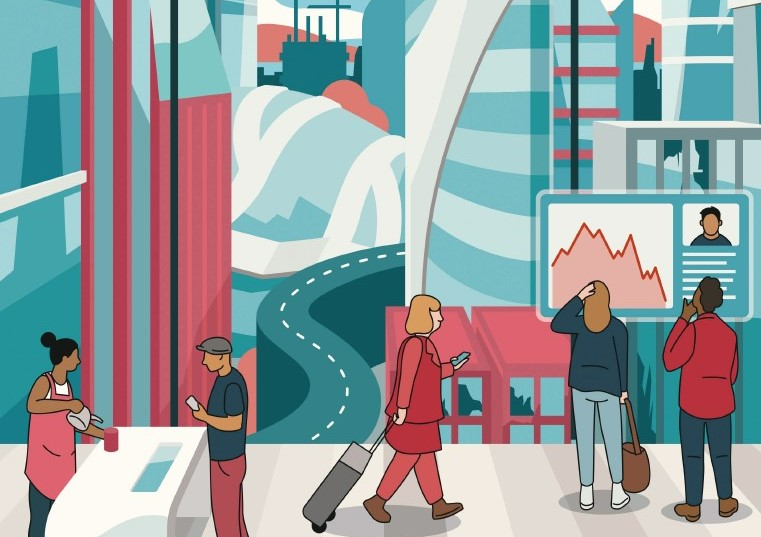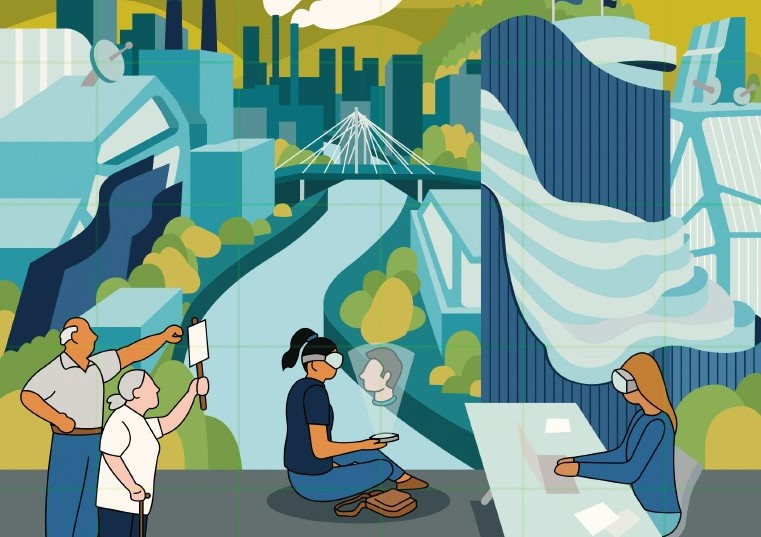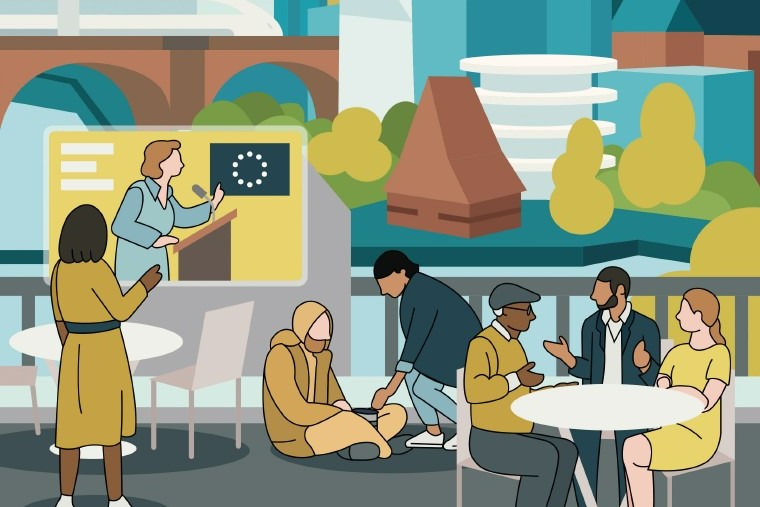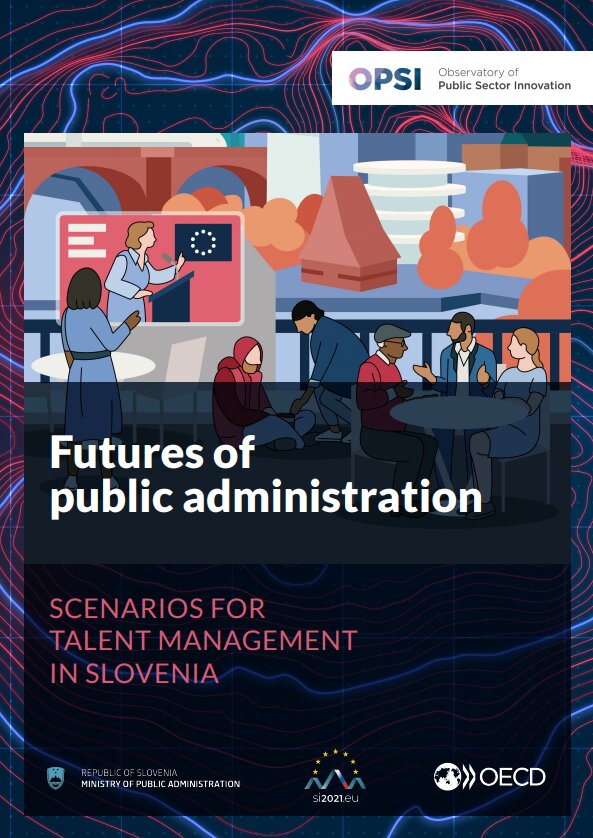Futures of Public Administration: Scenarios for talent management in Slovenia

Introduction
By building and analysing alternative future scenarios, the report shows how strategic foresight can help frame complex and uncertain problems affecting talent demand and supply in public administration. While the report focuses on talent management and public administration in Slovenia, insights can be used to inform practices in other countries and lead to meaningful and impactful action through innovation. At its core, the report supports a closer linkage between talent management and the objective of public administrations to deliver sustainable prosperity and well-being to its citizens as well as to make talent management more responsive to emerging change.
Main drivers of change
Demographics, technology and automation, labour markets and social protection, climate change and government and institutions were identified as the five main drivers of change.
The effects of these drivers on public services are multifaceted: not only will they alter the nature of policy-making and of the public sector’s work, they will also create pressure for change in the internal structures of public administrations, impacting the very processes through which public services are designed and delivered. Importantly, the impact of these dynamics on citizens’ expectations about government services is also bound to have extensive consequences on the skills and capabilities required from the public-sector workforce.
Talent management scenarios in Slovenia
Scenarios are sets of alternative futures, in the form of snapshots or stories, giving an image of a future context. They are intentionally fictional, and should not be interpreted as predictions or recommendations. They are constructed for the purpose of learning and taking action in the present. This is achieved by generating, testing, and reframing ideas about what the future might be like.
Through four scenarios – Higher Flyers, Closer Cultivators, Freer Thinkers and Better Neighbours – we invite public administration to explore the implications of a world with increasingly more top talent on the move, more human-touch services or where Artificial Intelligence (AI) or regional relations are of increasing importance.
Higher Flyers
How to stay connected to top talent on the move? Looking at a highly globalised digital world where talent is mobile and delocalised and where opportunities are unequally distributed. In this future scenario, public services outsource many of their tasks to other labour markets in search of better and cheaper talent.

Closer Cultivators
How to provide the best human-touch public services? A world where pandemics and disasters lead society to reconsider the value of local supply chains and to value rural life. Public organisations are fully adapted to remote work and talent moves outside of urban centres.

Freer Thinkers
How to ensure ethical and meaningful work with AI? Looking at a world where algorithms and artificial intelligence become dramatically greater factors in determining how people live their lives. AI decision-making contributes to citizens’ renewed trust in public institutions. However, ethical concerns arise over who designs these algorithms and how this is done.

Better Neighbours
How to ensure an inclusive social contract? A world where the government of Slovenia and the EU are able to regain the trust of citizens thanks to better transparency and freedom of information measures. This contributes to greater representation of different groups and decreased inequalities, as well as much more intensive international cooperation and migration.


Futures of Public Administration: Scenarios for talent management in Slovenia
Published on 16 November 2021.
